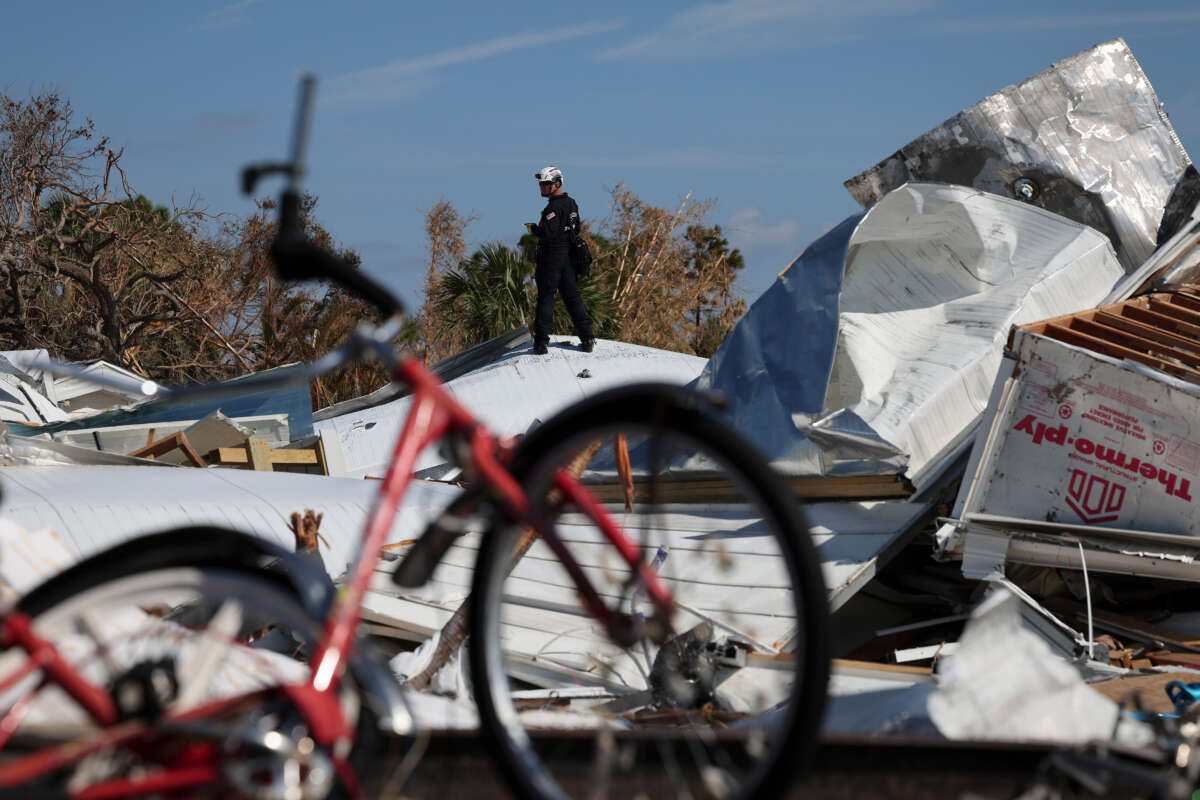Truthout is an indispensable resource for activists, movement leaders and workers everywhere. Please make this work possible with a quick donation.
A new report reveals the devastating cost of extreme weather events in the United States last year, with 18 events resulting in costs over $1 billion each and hundreds of lives lost.
In total, 474 people in the U.S. died in 2022 due to those 18 weather events, according to a report from the National Oceanic and Atmospheric Administration (NOAA).
Last year placed third “for the highest number of disasters recorded in a calendar year,” NOAA said on its website. The two years that saw a higher number of billion-dollar weather events were both recent; in 2021, there were 20 such events, and in 2020, there were 22.
Though previous years have had a greater number of billion-dollar extreme weather events, 2022 was more costly — “Damages from these disasters totaled approximately $165.0 billion for all 18 events,” NOAA said, noting that in the year prior, the total cost was $155.3 billion.
The severe weather events included hurricanes, flooding, winter storms, tornadoes, droughts, and more. Hurricane Ian was the most expensive of the 18 events in NOAA’s report, costing $112.9 billion — the third most expensive hurricane since the agency started recording costs in 1980.
Over the past seven years, NOAA noted, there have been over 122 separate billion-dollar weather-related disasters, with financial costs exceeding $1 trillion total. At least 5,000 people died as a result of these disasters.
Although the report doesn’t mention climate change, scientists from NOAA have said that the climate crisis is responsible for the increase in extreme weather events in the U.S. and around the world.
“The frequency & severity of extreme climate events continue to increase,” NOAA Administrator Rick Spinrad said on Twitter. “Today’s stats underscore why we must build our resiliency to these costly events & become a #ClimateReadyNation.”
In an email to Truthout, NOAA applied climatologist Adam Smith confirmed that the rise in extreme weather events is the result of the climate crisis.
“Climate change is supercharging the increasing frequency and intensity of certain types of extreme weather that lead to billion-dollar disasters — most notably the rise in vulnerability to drought, lengthening wildfire seasons in the Western states, and the potential for extremely heavy rainfall becoming more common in the eastern states,” Smith said. “Given all these compounding hazard risks, there is an increased need to focus on where we build, how we build, and investing in infrastructure updates that are designed for a 21st-century climate.”
Other organizations and experts noted that becoming “climate ready” isn’t enough — to lessen the frequency and severity of these events, the U.S. and other wealthy nations must act to reduce emissions.
“To curtail the worst climate and extreme weather disasters…major-emitting nations must take drastic actions to rein in global warming emissions,” a statement from the Union of Concerned Scientists said. “Policymakers must also invest equitably in climate adaptation measures.”
Rachel Cleetus, the policy director for the Climate and Energy Program for the Union of Concerned Scientists, told NPR:
This sobering data paints a dire picture of how woefully unprepared the United States is to cope with the mounting climate crisis and its intersection with other socioeconomic challenges in people’s daily lives. Rather than responding in a one-off manner to disasters within the U.S., Congress should implement a comprehensive national climate resilience strategy commensurate w/ the harm & risks we’re already facing.
A terrifying moment. We appeal for your support.
In the last weeks, we have witnessed an authoritarian assault on communities in Minnesota and across the nation.
The need for truthful, grassroots reporting is urgent at this cataclysmic historical moment. Yet, Trump-aligned billionaires and other allies have taken over many legacy media outlets — the culmination of a decades-long campaign to place control of the narrative into the hands of the political right.
We refuse to let Trump’s blatant propaganda machine go unchecked. Untethered to corporate ownership or advertisers, Truthout remains fearless in our reporting and our determination to use journalism as a tool for justice.
But we need your help just to fund our basic expenses. Over 80 percent of Truthout’s funding comes from small individual donations from our community of readers, and over a third of our total budget is supported by recurring monthly donors.
Truthout has launched a fundraiser, and we have a goal to add 280 new monthly donors in the next 72 hours. Whether you can make a small monthly donation or a larger one-time gift, Truthout only works with your support.
